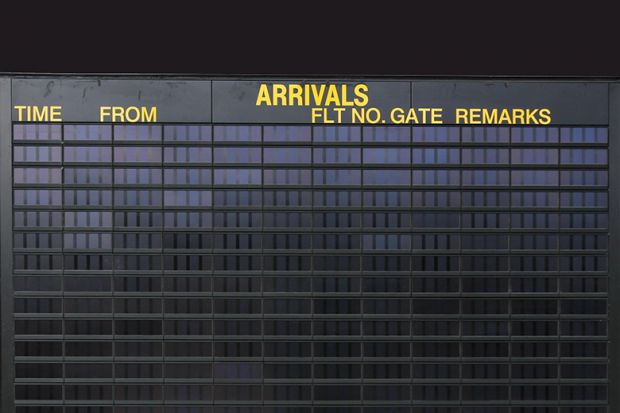Australia’s effective sealing off from the rest of the globe during the Covid-19 pandemic has left policymakers in knots. The public health security brought about by border closures has come at a price to many sectors, including higher education, one of the country’s largest industries. Restructuring, department mergers and redundancies (voluntary or otherwise) characterise the monthly news cycle as the loss of income from international students starts to bite.
Through injudicious decision-making, Australian universities became overly reliant on specific overseas markets, of which China was the standout.
Sociologist Salvatore Babones was already issuing warnings in 2019 that Australian universities were “taking a multibillion-dollar gamble with taxpayer money to pursue a high-risk, high-reward international growth strategy that may ultimately prove incompatible with their public service mission”. He estimated that in 2017, international students accounted for nearly a quarter of some universities’ entire revenue, with China making up around half of all international fees across the sector.
With the closure of Australia’s borders at the onset of the pandemic, nearly a third of the country’s Chinese students found themselves languishing in China. On 1 February 2020, the Morrison government stated that foreign nationals in mainland China “will not be allowed to enter Australia for 14 days from the time they have left or transited through mainland China”.
But this was before the development of Covid-19 vaccines. Globally, universities have accepted that vaccines permit the return of students, domestic or international. As Antonio Calcado, executive vice-president and chief operating officer at Rutgers University, told CNN in April: “We feel [the] vaccine is the game-changer for us to bring back as many people as we can in September.”
In the US, some institutions of higher learning have already made decisions on accepting international students, subject to conditions. The University of California, for instance, proposed in April that all students returning from overseas first have to be inoculated with a World Health Organization-approved vaccine. A June message to students from Benoit Dubé, University of Pennsylvania’s associate provost and chief wellness officer, also announced that “all students living on and off campus [must] be fully vaccinated for the fall semester”. Those not yet fully vaccinated will be subject to weekly testing.
UK universities are not even insisting on vaccination for students ahead of the new term in September – except for large parties (though many are planning to continue to hold lectures online, and students from certain countries will still have to self-isolate on entry to the UK).
Australia is proving a stubborn laggard, however. Phil Honeywood, CEO of the International Education Association of Australia, has suggested a scheme that “would permit international students to enter Australia if they can provide proof of having been vaccinated prior to boarding their flight”. But the Commonwealth shows little sign of biting on this.
Indeed, the government is continuing to impose punitively policed caps and restrictions even on returning Australian expats, irrespective of their vaccination status. South Australia has gone so far as to subject fully vaccinated Australian Olympians to an additional 14-day quarantine period – after a fortnight’s quarantine in Sydney – following the Tokyo Games.
The strategy of Covid Zero, aided by harsh lockdowns and closed borders, has become a mantra indifferent to distinctions and disproportionate in application. Such a policy is looking increasingly tenuous, with the Delta surge in New South Wales and a new outbreak in Melbourne. NSW premier Gladys Berejiklian now claims that “we now have to live with Delta one way or another, and that is pretty obvious”.
Living with Covid-19, however, is only possible with high levels of community vaccination. On 30 July, the Morrison government outlined a four-phase plan with targets that need to be met before Australians will see eased restrictions. Ominously for the tertiary sector, borders will only start reopening once 80 per cent of eligible Australians are vaccinated. No timeline has been set to achieve this.
Such an approach refuses to account for international students, who have shown a high level of acceptance for vaccination as a precondition to entering countries and attending higher education institutions. A June survey of prospective and current international students found that 53 per cent were in favour of requiring a vaccine passport to attend classes on campus, while 59 per cent thought universities should require international students to be vaccinated before arrival.
Indeed, students’ preference for countries with high vaccination rates poses additional challenges for Australian policymakers and university officials, given the country’s poor record of vaccination relative to other developed countries. A vaccination passport arrangement would go some way towards alleviating this problem in a manner that lowers risk while aiding an ailing sector.
As Universities Australia chief executive Catriona Jackson warned: “Further delay to reopening Australia’s borders past 2021 will have consequences [for] universities and other providers – as well as national prosperity – over multiple years.” It is time for a change of approach. Australia may have become over-reliant on Chinese students, but keeping the tap turned off even in the face of available safe and appropriate responses is a ruinous solution.
Binoy Kampmark is a senior lecturer in the School of Global, Urban and Social Studies at RMIT University, Melbourne.
Register to continue
Why register?
- Registration is free and only takes a moment
- Once registered, you can read 3 articles a month
- Sign up for our newsletter
Subscribe
Or subscribe for unlimited access to:
- Unlimited access to news, views, insights & reviews
- Digital editions
- Digital access to THE’s university and college rankings analysis
Already registered or a current subscriber? Login








